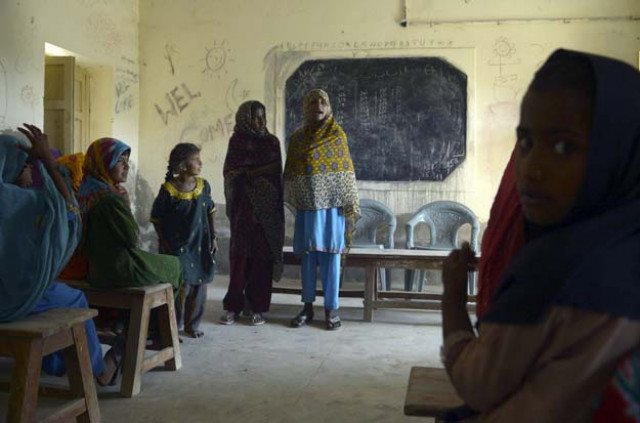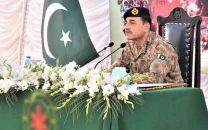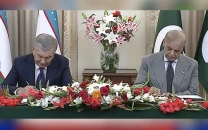Empowering rural women through literacy
Plan to establish 100 non-formal education centres across four districts

In the verdant heart of Sindh's rural landscape, where the daily rhythms of agricultural life often leave little room for personal growth, a new chapter in women's empowerment has begun. The Directorate of Literacy and Non-Formal Education (DLNFE) Sindh and the Sindh Community Foundation (SCF) have formalised a partnership to expand literacy access for rural women through the signing of a Letter of Understanding (LoU).
Over the next three years, the initiative will establish 100 literacy centres, aiming to equip 3,000 rural women agriculture workers with essential reading, writing, and numeracy skills across Matiari, Sanghar, Thatta, and Mirpurkhas districts where female literacy rates remain critically low. These tools are not just academic, but transformational, enabling women to engage more fully in their economic and social lives.
The programme is said to be a comprehensive strategy rooted in community engagement, government alignment, and localised expertise. The initiative includes joint needs assessments, development of context-specific curriculum, deployment of trained literacy facilitators, and continuous monitoring using the NFEMIS (Non-Formal Education Management Information System), ensuring measurable impact.
Director DLNFE Sindh Abdul Jabbar Mari said, "This initiative is about more than just teaching women to read — it is about weaving literacy into the very fabric of rural life, where it has long been absent. Education shapes nations, and every step we take today helps us transcend yesterday's limitations."
He added that the provincial govt is fully committed to ensuring that rural women are not left behind in the province's educational progress, stating: "Through partnerships like this, we are not only bridging literacy gaps but also building stronger, more informed communities. Women's education is central to our broader development goals, and we are dedicated to creating inclusive pathways to learning, especially for those historically marginalised."
Executive Director SCF Javed Hussain echoed the sentiment and said, "We have witnessed firsthand how literacy transformed the lives of 789 rural women in earlier phases. Those women now calculate wages and keep records with confidence. With this new collaboration, we embark on a broader mission to reach thousands more and transform learning into liberation."





















COMMENTS
Comments are moderated and generally will be posted if they are on-topic and not abusive.
For more information, please see our Comments FAQ